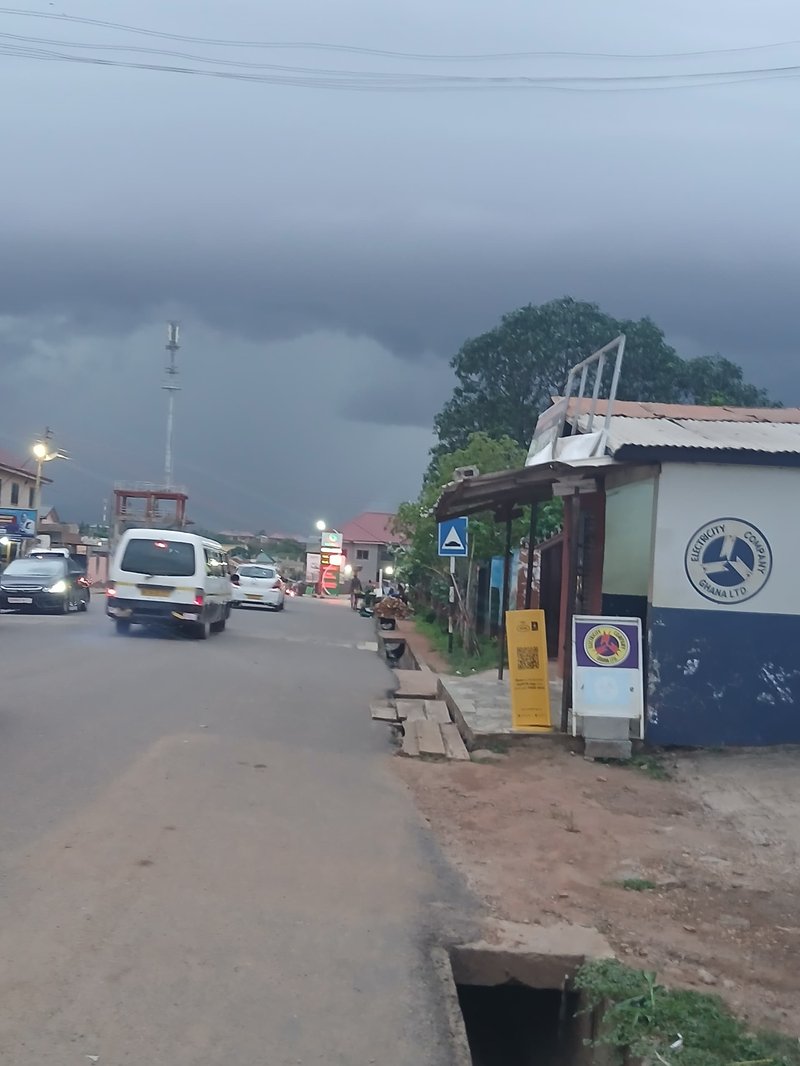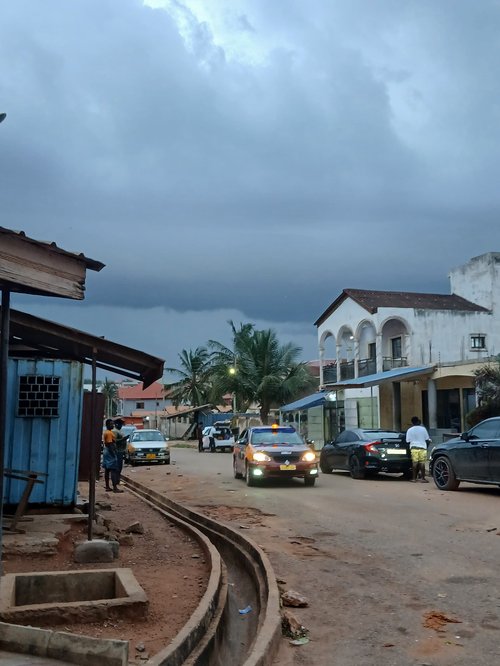Enhancing Weather Warnings in Ghana

The University of Leeds is collaborating with institutions in Ghana to combat climate challenges and nurture the next generation of scientists.
Researchers are working to improve storm prediction for Ghana's energy sector, developing and deploying new ground-based observation systems for lightning. The energy sector in Ghana will benefit from tailored warnings as it is vulnerable to lightning and storms.
This project supports the United Nations’ ‘Early Warning for All’ initiative by improving early warnings and equipping a new generation of African scientists with the knowledge and skills to combat these challenges.
The project, EW4Energy, will install ground-based data sensors across Ghana to build capacity for advanced sensor networks. It will also provide a platform for students on industrial internships to learn about lightning sensors and data for research.
The project will make use of new high-frequency satellite observations of lightning, now available from the “Meteosat Third Generation” satellite platform, providing a new opportunity for improved nowcasts of storms and lightning.
The project will also make use of the FASTA (Forecasting African Storms Application) app in Ghana to help predict lightning for the energy sector, co-produce information and warnings to develop Ghana’s public storm and lightning warnings.
As a part of the project, the Tropical Africa model, developed by the Met Office to predict storms at a high resolution, will be evaluated. Observations from lightning sensors will be used to show the relationship between lightning and rainfall and to what extent lightning is an indicator of extreme rainfall. These outcomes will help to develop tools to enhance early warnings for thunderstorms, including nowcasting.
Dr Michael Baidu, Research Fellow at the Institute for Climate and Atmospheric Science (ICAS) at the University of Leeds and researcher co-lead, said: “I am incredibly motivated to improve weather forecasting in the Ghana and I’m looking forward to contributing to finding a solution for this problem.”
Dr Baidu was born in Ghana and completed his bachelor’s degree at KNUST (Kwame Nkrumah University of Science and Technology), before studying for a Master's at The Abdus Salam International Centre for Theoretical Physics (ICTP), Italy[RH1] [MB2] and a PhD in Leeds. He also spent a year working at the Ghana Meteorological Agency and is really looking forward to working with them on this project.
Maureen Abla Ahiataku, Principal Meteorologist and External Relations Officer at the Ghana Meteorological Agency (GMet) and Project co-lead, said: “Building upon our successful partnerships with the University of Leeds and KNUST under the GCRF African-SWIFT project, which strengthened our impact-based forecasting for extreme weather and maritime conditions, we are confident that this new project will further mainstream research into our operations.
“This will lead to improved forecasts and warnings, specifically addressing the lightning forecast and data gap for disaster risk reduction and safer energy-related activities. This aligns perfectly with the UN Secretary General's Early Warning for All (EW4All) initiative.”
Bringing together the UK Centre for Ecology and Hydrology, the Ghana Meteorological Agency and the three universities of Leeds, Cape Coast and KNUST, this project will strengthen research capabilities within Ghana to address the energy challenges that the African economy faces.

Dr Jeffrey N. A. Aryee, Lecturer and Research Scientist at KNUST and project co-lead, added: “It's exciting to be part of a project that turns cutting-edge science into real-world impact. EW4Energy has the potential to strengthen Ghana’s energy sector and protect communities from extreme weather-related shocks.”
PhD students from the University of Leeds as well as students from KNUST will test their new AI based nowcasting algorithms in Ghana as a part of their studies, to improve storm prediction in the AI models. Taking advantage of the AI and machine learning revolution, a cheaper and more accurate solution is envisioned. [MB3] [MB4]
EW4Energy will also build capacity and development in education. The project will educate secondary school students in order to inspire them to take up weather forecasting as a career in the future, with a specific aim to inspire more women into Science, Technology, Engineering and Maths (STEM) subjects.
There will also be training programmes at local Universities including KNUST and University of Cape Coast [RH5] [MB6] to help teach students about coding, programming and machine learning.
This project is also linked with the Weather and Climate Information Services (WISER) Early Warnings for Southern Africa (EWSA) project which is working with a variety of partners to identify solutions including local scientists and weather forecasters, as well as representatives from local communities.
Further information
For more information, please contact Rebecca Hurrey at r.hurrey@leeds.ac.uk in the University of Leeds Press Office.
Picture credit: Deborah Acheampong.
Source: University of Leeds Press Office

